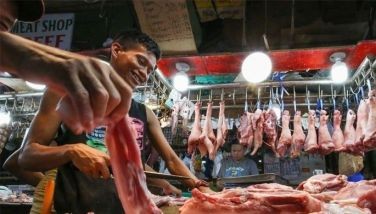Ex-Liberiain leader Taylor goes on trial for war crimes
THE HAGUE (AFP) - The war crimes trial of former Liberian president Charles Taylor, accused of controlling rebel groups in neighbouring Sierra Leone that went on a blood diamond-financed rampage of rape and mutilation, starts here Monday.
The first African head of state to go on trial for war crimes before an international tribunal, Taylor will be tried by the UN-backed Special Court for Sierra Leone.
Taylor, 59, faces 11 charges of crimes against humanity and war crimes committed during the 1991-2001 civil war in Sierra Leone, considered one of the most brutal in modern history. Up to 200,000 people were killed in the fighting and rebels mutilated thousands more, cutting off arms or legs, ears or noses.
According to the charges against him Taylor armed, trained and controlled Sierra Leone's notorious Revolutionary United Front (RUF), responsible for many of the mutilations, in exchange for still-unknown amounts of so-called blood diamonds. Taylor has denied all the charges.
In Sierra Leone relief prevailed that Taylor was finally going on trial nearly four years after he was indicted.
"It has taken so long in coming that our memories were beginning to fade," war victim Ansumana Turay, whose hands were hacked off during the civil war, told AFP in Freetown.
"There can be no peace without justice and that is what this case stands for," said Stephen Rapp, the prosecutor for the Special Court for Sierra Leone (SCSL).
With his war crimes trial in The Hague, Taylor follows in the footsteps of former Yugoslav president Slobodan Milosevic, who was the first ever head of state to go on trial for war crimes before an international court.
Milosevic died March 11, 2006 -- in the same prison in The Hague where Taylor is now being held -- while his trial was still underway before the UN court for the former Yugoslavia.
In the run-up to the trial, Taylor's defence lawyer Karim Khan repeatedly complained that he did not have enough time or resources to properly prepare for the trial.
He also protested the change of venue, saying it affected the former president's right to a fair trial.
Sierra Leonean authorities had requested the trial be held in The Hague as they feared holding it in Freetown could cause unrest as Taylor is believed to still have many supporters.
Some human rights organisations and victims have also complained about the trial's move to The Hague saying it would be better for the victims in Sierra Leone to see him judged there.
"My only regret is that he is not going to be tried here. I would have liked to see him physically in the dock," Sam Tobias, another war victim from Sierra Leone who was starved of food and water for several days and forced to dig for diamonds, said.
On Monday the prosecution will present its opening statement, expected to last some four hours, outlining the evidence it intends to present. Then the court will adjourn until June 25, when the first witness will take the stand.
The trial is expected to finish within 18 months, before Christmas 2008.
If convicted, the statute of the Sierra Leone tribunal states that Taylor must be sentenced to "imprisonment for a specified number of years" without giving a maximum.
Under the deal to relocate the trial to the Netherlands, it was agreed that if convicted Taylor will serve his sentence in a British jail.
- Latest
- Trending































